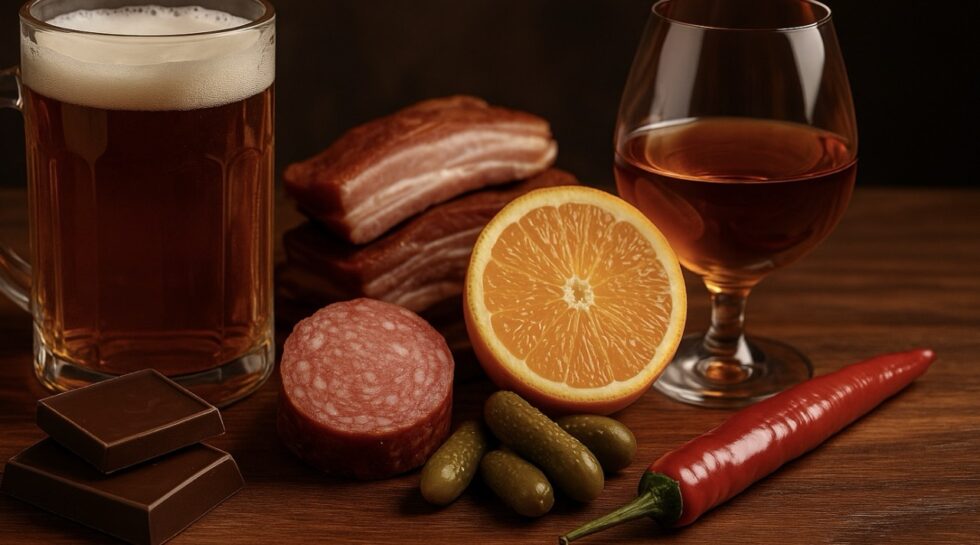5 foods you should never mix with alcohol – doctors warn

A glass of wine with dinner or a cocktail at a celebration might seem harmless. But certain foods, when combined with alcohol, can put your liver, digestive system, and even your pancreas under severe stress.
According to medical experts cited by G.Business, several food and alcohol combinations can lead to inflammation, delayed detoxification, and serious gastrointestinal issues. Here are five food groups you should avoid when drinking alcohol – along with safer alternatives.
Chocolate and alcohol – a dangerous duo
Despite its reputation for indulgence, combining chocolate (especially dark, high-fat varieties) with alcohol can lead to a surge in enzyme secretion from the pancreas. When paired with strong spirits like cognac or liqueur, this may trigger acute pancreatitis – even in people with no prior health conditions.
Gastroenterologists warn that this combination can cause nausea, sharp abdominal pain, and in some cases, emergency hospitalisation due to inflammation of the pancreas.
Pickled and preserved foods – irritation from within
Pickles, pickled vegetables, and products high in vinegar, salt, or preservatives are harsh on the stomach lining. Alcohol amplifies this effect by increasing gastric acid production, causing bloating, reflux, and stomach irritation.
High-sodium foods also contribute to water retention, intensifying hangover symptoms. Health agencies in Germany and Poland have linked excessive salt-alcohol combinations with an increased risk of hypertension and gastritis.
Spicy foods – too much heat for the gut
Spices like chili, cayenne pepper, or hot sauces may enhance taste, but in combination with alcohol, they overstimulate the digestive tract. Capsaicin (the compound that makes peppers hot) increases blood flow and can damage the mucous lining of the stomach and esophagus.
A 2024 clinical study by the University of Munich found that pairing spicy foods with alcohol on a regular basis increases inflammation in the upper GI tract and can lead to ulcers over time.
Citrus fruits – acidic and pharmacologically risky
Oranges, lemons, and particularly grapefruits contain acids that irritate the stomach, especially when consumed with alcohol. Grapefruit also inhibits the liver enzyme CYP3A4, which is crucial for metabolising alcohol and many prescription drugs.
According to the Paul Ehrlich Institute, this interaction can cause unpredictable drug-alcohol effects – especially dangerous for those taking medications for blood pressure, anxiety, or cholesterol.
Smoked meats and fatty processed products
Bacon, salami, sausages, and smoked fish are loaded with nitrates, flavour enhancers, and saturated fats. When consumed alongside alcohol, they overwhelm the liver, which is forced to process both the ethanol and chemical additives simultaneously.
Research from the Helmholtz Centre for Environmental Health shows that this combination increases the production of carcinogenic nitrosamines and slows down liver detoxification, leading to prolonged hangovers and increased liver stress.
So what should you eat instead when drinking alcohol
Nutritionists recommend choosing lighter, less irritating foods such as:
- lean poultry or fish
- boiled vegetables and legumes
- low-fat cheeses or cottage cheese
- wholegrain bread or brown rice
- plenty of still water or unsweetened herbal tea
Never drink on an empty stomach, and avoid heavily processed or acidic foods. Moderation remains the best protection.
Stay connected for news that works — timely, factual, and free from opinion — and insights that matter now: How to Use Your Contrast Shower for Health, Immunity and Mental Strength